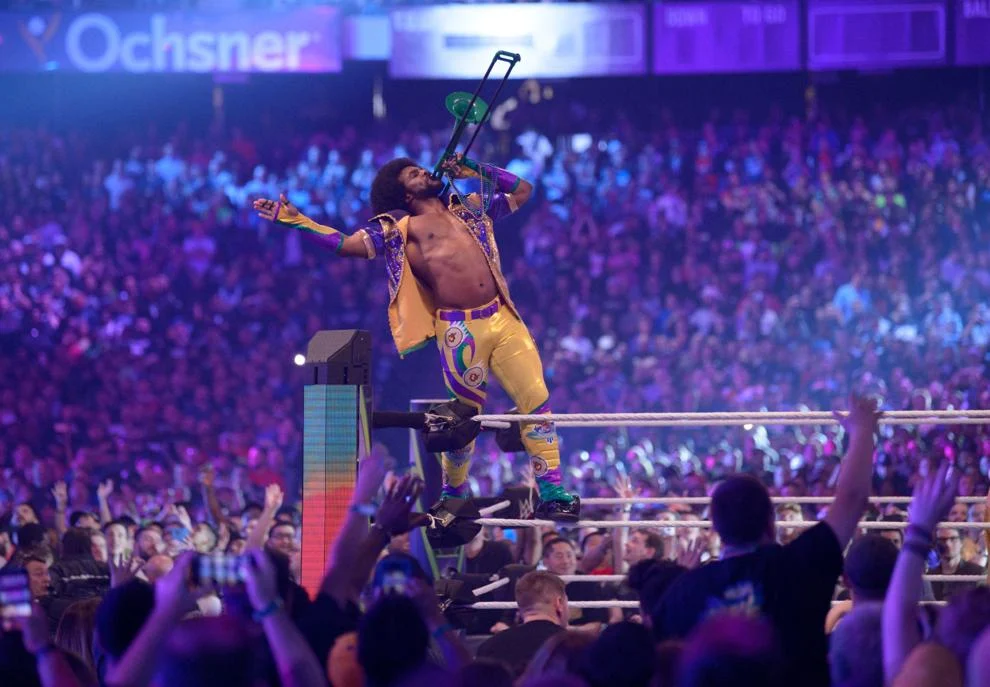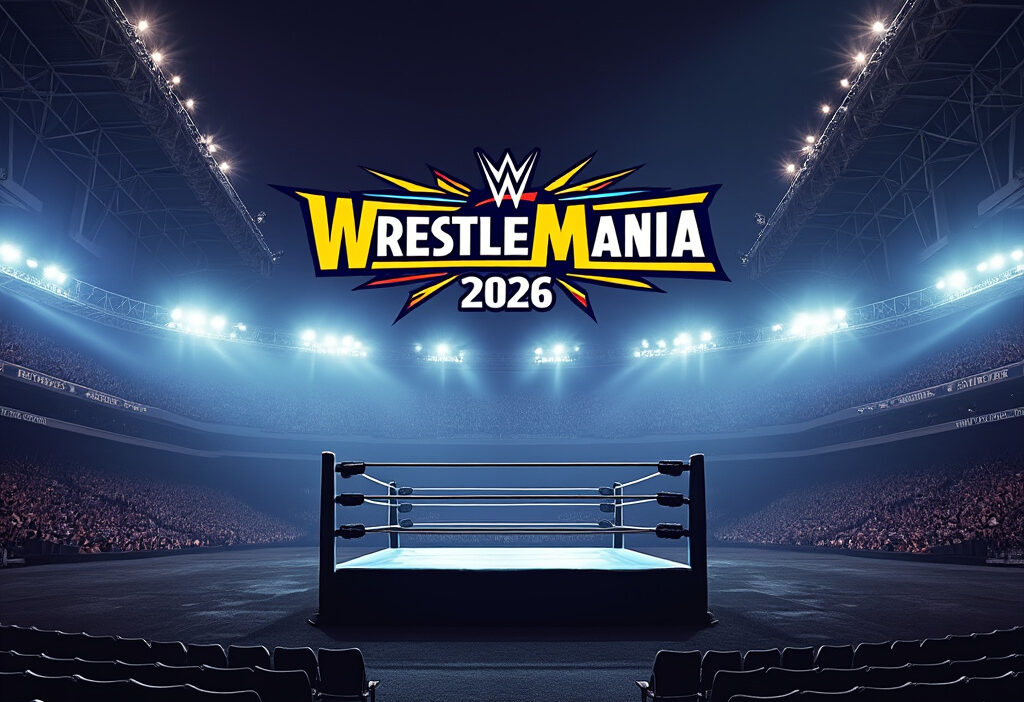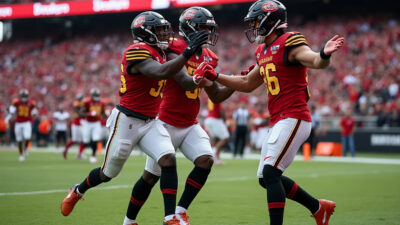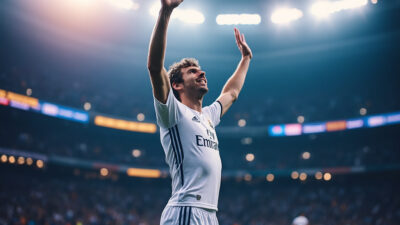WWE Cancels WrestleMania 2026 in New Orleans
In a surprising turn of events, WWE has canceled WrestleMania 42 in New Orleans, shifting the event to Las Vegas. This decision has sent shockwaves through the wrestling community and altered WWE’s event calendar. This article delves into the reasons behind the cancellation, the reactions from fans and local organizations, and what the future holds for WrestleMania in New Orleans.
The Original Announcement
WWE’s announcement of WrestleMania 42 in New Orleans sent waves of excitement through the wrestling world. Dwayne “The Rock” Johnson, a key figure in the promotion, personally revealed the event during a high-energy segment on SmackDown, confirming it would take place on April 4-5, 2026. New Orleans, a city with deep wrestling history, was chosen for its vibrant culture and state-of-the-art Caesars Superdome, which previously hosted WrestleMania 30 and 34.
The economic boost was projected to be massive, with past events generating over $175 million in local revenue. Hotels, restaurants, and tourism boards anticipated record bookings, while WWE promised an unforgettable spectacle, including potential celebrity appearances and major storyline payoffs. Fans immediately began planning trips, and ticket pre-registrations surged within hours of the announcement. The Rock’s involvement fueled speculation of a marquee match, adding to the hype.
New Orleans’ rich entertainment legacy made it a fitting host, but behind the scenes, logistical challenges were already brewing—setting the stage for the shocking cancellation that would follow.
The Sudden Cancellation
The wrestling world was stunned when WWE abruptly canceled WrestleMania 2026 in New Orleans, just months after its grand announcement. The Greater New Orleans Sports Foundation and New Orleans & Company released a joint statement citing “unforeseen logistical challenges” as the primary reason, though rumors swirled about financial disagreements and venue conflicts. The timing—less than a year before the event—left fans and local businesses scrambling, with many questioning why alternatives weren’t pursued.
Immediate reactions from the wrestling community ranged from disappointment to frustration. Wrestlers, including those who had already begun planning storylines for the event, expressed shock on social media. Prominent figures like Triple H acknowledged the decision was “difficult but necessary,” while fans speculated about deeper issues behind the scenes. The cancellation also raised concerns about WWE’s long-term relationship with New Orleans, a city that had previously hosted successful WrestleManias in 2014 and 2018.
Local officials emphasized their commitment to maintaining ties with WWE, hinting at future collaborations, but the sudden void in the event calendar left a palpable sense of uncertainty.
The Replacement Event
The decision to replace WrestleMania 2026 with Money in the Bank in New Orleans came as a strategic pivot by WWE. While the cancellation of WrestleMania left fans disappointed, the choice of Money in the Bank—a high-stakes, fan-favorite event—softened the blow. New Orleans, already prepared for a major WWE spectacle, will still host a premium live event, ensuring economic benefits for local businesses and tourism.
For wrestling fans, the shift means a different but equally thrilling experience. Money in the Bank’s ladder match spectacle offers its own brand of chaos and opportunity, though it lacks WrestleMania’s grandeur. The move also hints at WWE’s flexibility in adapting its calendar, possibly testing New Orleans as a future WrestleMania host. However, the city’s loss of WrestleMania’s global spotlight raises questions about long-term event partnerships.
The New Host City Las Vegas
Las Vegas emerged as WWE’s top choice for WrestleMania 42 after the overwhelming success of WrestleMania 41, which shattered attendance and revenue records. The city’s world-class venues, like Allegiant Stadium, and its reputation as an entertainment hub made it an easy pick. WWE cited strong fan engagement, logistical efficiency, and Las Vegas’ ability to handle large-scale events as key factors. The 2025 event proved the city could deliver a seamless experience, from hotel accommodations to transportation, minimizing operational headaches. Additionally, Las Vegas’ 24/7 entertainment culture aligned perfectly with WWE’s vision for a week-long spectacle. The decision also reflects WWE’s strategy of rotating marquee events to maximize global appeal while leveraging proven markets. With New Orleans out, Vegas was the natural successor, offering unmatched infrastructure and fan excitement.
Behind the Scenes Reactions
The cancellation of WrestleMania 2026 in New Orleans sent shockwaves through the wrestling community, leaving local organizations and fans reeling. Tourism officials expressed deep disappointment, having anticipated a major economic boost from the event. WWE insiders hinted at logistical challenges, though specifics remain undisclosed. Fans took to social media, flooding platforms with frustration and nostalgia for past New Orleans-hosted WrestleManias. Meanwhile, Louisiana’s wrestling scene, which had hoped for renewed spotlight, now faces uncertainty. Despite the setback, many hold out hope for future WWE events, emphasizing the city’s proven ability to deliver unforgettable shows. The abrupt shift to Las Vegas has only intensified the conversation about WWE’s evolving priorities.
The Economic Impact
The cancellation of WrestleMania 2026 in New Orleans delivers a significant economic blow to the city, which had anticipated a windfall from tourism, hospitality, and local businesses. New Orleans was projected to generate over $200 million in revenue, with hotels, restaurants, and entertainment venues bracing for a surge in visitors. The sudden shift leaves a void, particularly for small businesses relying on the event’s foot traffic.
Meanwhile, Las Vegas stands to gain immensely as the new host. The city’s existing infrastructure, including Allegiant Stadium and a thriving entertainment district, positions it to capitalize on WWE’s global audience. Vegas could see an even larger economic boost than New Orleans, potentially exceeding $250 million, thanks to its higher hotel capacity and premium pricing.
The contrast highlights the uneven impact of WWE’s decision. While New Orleans faces lost opportunities, Las Vegas reinforces its reputation as a premier event destination. The move also raises questions about WWE’s long-term strategy in balancing tradition with high-revenue markets.
Future WrestleMania Plans
Despite the cancellation of WrestleMania 2026, WWE/TKO remains committed to New Orleans as a key market. The city is still under consideration for future WrestleMania events, with discussions ongoing about potential dates in 2027 or beyond. Indianapolis has also emerged as a strong contender, given its modern stadium and successful hosting of major events.
The partnership between WWE/TKO and New Orleans extends beyond WrestleMania, with plans for other premium live events and collaborations. The city’s rich wrestling history and infrastructure make it a valuable location, ensuring it stays in WWE’s rotation. Meanwhile, UFC 318’s upcoming event in New Orleans reinforces the TKO connection, blending combat sports under one umbrella strategy.
WWE’s long-term vision includes diversifying host cities while maintaining relationships with proven markets like New Orleans. The shift reflects a broader effort to optimize logistics, fan experience, and economic returns, ensuring WrestleMania remains a global spectacle.
The Role of UFC 318
The decision to cancel WrestleMania 2026 in New Orleans was influenced by the strategic placement of UFC 318, a major event under the WWE/TKO partnership. Scheduled just weeks before the originally planned WrestleMania date, UFC 318 is set to dominate the New Orleans sports scene, creating logistical and financial challenges for hosting back-to-back mega-events.
This move reflects a broader strategy to optimize the combined WWE and UFC calendar, avoiding fan fatigue and maximizing revenue. By spacing out major events, WWE/TKO ensures each show receives undivided attention from media, sponsors, and audiences. UFC 318 also serves as a testing ground for New Orleans’ infrastructure, potentially paving the way for future WrestleMania returns under more favorable conditions.
The alignment of UFC 318 with WrestleMania’s original slot highlights the growing synergy between WWE and UFC under TKO’s umbrella. It underscores a shift toward strategic event stacking, where marquee dates are carefully curated to avoid oversaturation while maintaining year-round engagement. Fans may see this as a trade-off, but for WWE/TKO, it’s a calculated play to strengthen both brands in the long term.
Fan Reactions and Social Media Buzz
The announcement of WWE canceling WrestleMania 2026 in New Orleans sent shockwaves through the wrestling community, sparking intense reactions across social media and forums. Fans expressed a mix of disappointment, confusion, and frustration, with many questioning the decision after years of anticipation. On Twitter, hashtags like #WrestleManiaCanceled trended, while Reddit threads dissected potential reasons beyond the UFC 318 conflict.
Key reactions included:
- A viral tweet from a longtime fan: “New Orleans deserved this. After hosting iconic moments, this feels like a betrayal.”
- Forum debates on whether WWE prioritized UFC’s schedule over loyal wrestling fans.
- Speculation about alternative locations, with cities like Las Vegas and London gaining traction.
Some supporters defended the move, citing logistical or financial logic, but the overwhelming sentiment leaned toward disillusionment. Memes mocking the situation flooded Instagram, while YouTube analysts highlighted how the cancellation could damage WWE’s relationship with the city. The backlash underscored how deeply fans invest in WrestleMania’s legacy—and how quickly trust can erode.
The Bigger Picture for WWE
WWE’s decision to cancel WrestleMania 2026 in New Orleans signals a strategic shift in how the company evaluates host cities. Financial performance and audience engagement metrics are now driving factors, with WWE prioritizing markets that deliver higher revenue through ticket sales, sponsorships, and local partnerships. Cities like Las Vegas and Los Angeles have recently set records for attendance and merchandise sales, making them more attractive for marquee events.
Data analytics plays a crucial role in this recalibration. WWE leverages viewership trends, social media interactions, and historical event data to assess which locations maximize ROI. New Orleans, while a beloved wrestling city, may have underperformed in key metrics compared to newer or larger markets.
The move also reflects WWE’s focus on global expansion. By reallocating resources, the company could be preparing for international WrestleMania events or investing in emerging markets like Europe or the Middle East. This decision isn’t just about one canceled show—it’s about reshaping WWE’s long-term event strategy to align with evolving fan behaviors and financial opportunities.

Conclusions
The cancellation of WrestleMania 42 in New Orleans marks a significant shift in WWE’s event strategy, driven by financial success in Las Vegas. While disappointing for New Orleans, the city remains a key partner for future events. This move underscores WWE’s focus on maximizing audience engagement and revenue, setting the stage for an exciting future in wrestling entertainment.



